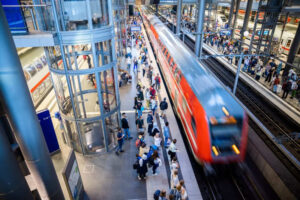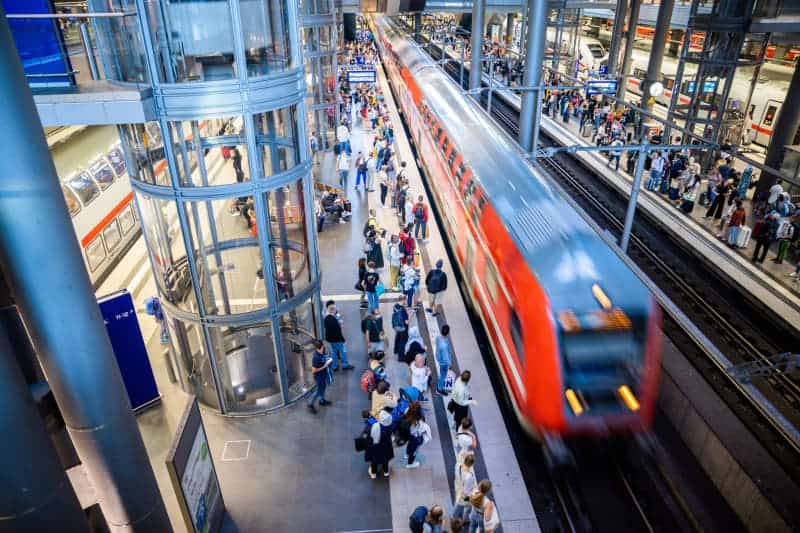
DPA

After tens of millions of ticket sales, Germany’s mobility experiment allowing travellers unlimited access to regional and urban trains and buses has been deemed a success in reducing the number of people driving cars.
The €9 ($9) monthly ticket, which allowed people to use all of Germany’s regional and local transportation networks – but not high-speed trains – in June, July and August, was sold 52 million times nationwide, transport officials have announced.
The Association of German Transport Companies (VDV), announcing the final tally at the end of the three months of reduced mobility costs, hailed the campaign as a complete success.
German Chancellor Olaf Scholz has been among those praising his government’s €9 transport pass, calling it “one of the best ideas we had,” earlier in August.
Against the backdrop of rising fuel prices, inflation rates, climate change and city spaces crowded with cars, the ticket was introduced in June as a historic one-off experiment designed to help citizens keep costs down.
In addition, Berlin wants to encourage people to switch to public transport in the interests of climate protection.
Indeed, a recent poll showed that almost one in three people were using the ticket for transport on routes they normally used by car.
Some 31% of adults said they frequently used the promotional ticket on routes they would otherwise have taken by car, according to a YouGov survey conducted for dpa. A further 18% said they had totally replaced their vehicle with local public transport.
In contrast, 22% used the discounted ticket only rarely on routes where they would otherwise have travelled by car.
According to the survey, 28% of Germans have bought a €9 ticket at least once. A further 22% already had a local transport subscription and benefited from a corresponding discount.
VDV officials are among a chorus of people in Germany now calling for a swift follow-up solution for the ticket. “If we are serious about the transport transition and climate change, we must act now,” said VDV Managing Director Oliver Wolff.
Environmental groups have also called for the experiment to be made permanent, given the likelihood of reduced carbon emissions from fewer cars on the roads.
According to research by Greenpeace, the mobility shift from continuing such an affordable ticket would reduce CO2 emissions by 2 to 6 million tonnes per year, given the assumption that such a ticket would increase the incentive to travel longer distances by regional trains and not by car.
At the same time, households would save between €224 and €474 per month with such a ticket, compared to the exclusive use of a car.
Affordable mobility also impacted across a wide variety of trips, and was not just limited to daily commuters ditching their cars for bus and rail.
According to the poll, one in two used the €9-ticket primarily for private journeys. Just under a quarter of those surveyed used it mainly to travel to work, while just as many used it primarily for tourist trips and excursions.
Survey results showed that the majority of Germans – 55% – only want to continue regular use of public transport if a similarly priced ticket is available again.
Despite calls for more affordable mobility, public transit costs are initially set to return to their previous levels, however.
Monthly travel tickets typically cost many multiples more than €9 (a standard monthly Berlin urban transit ticket costs €86) and, unlike the limited €9 ticket, are valid only in one German city or region.


Recommended Comments
There are no comments to display.